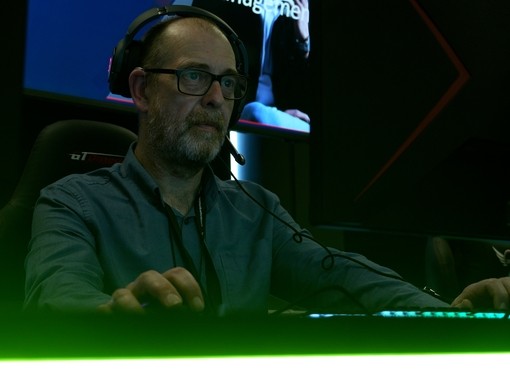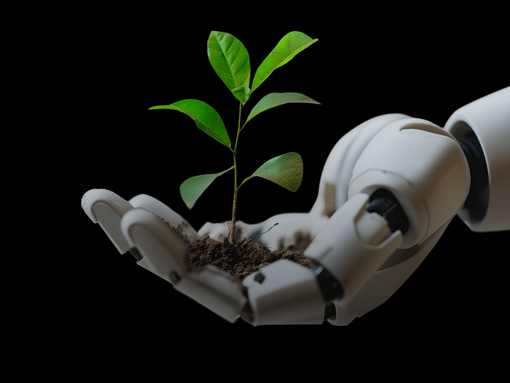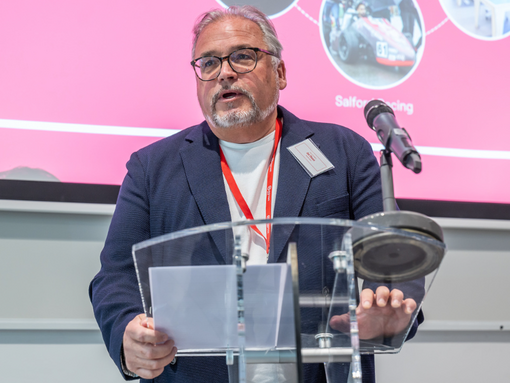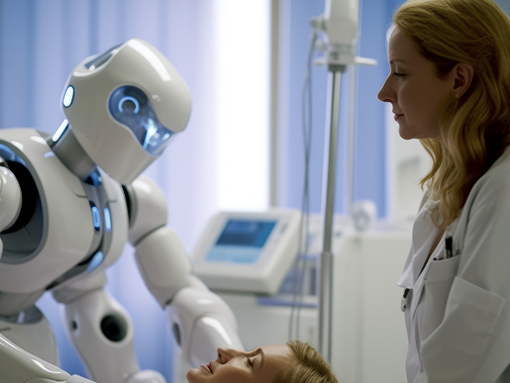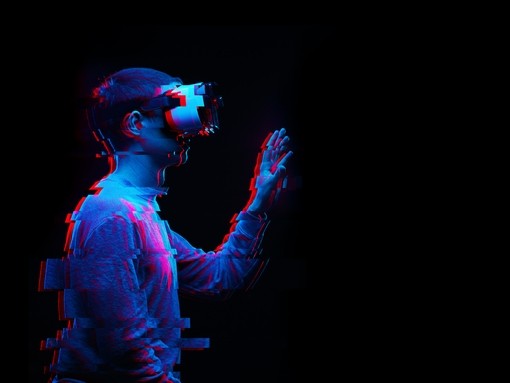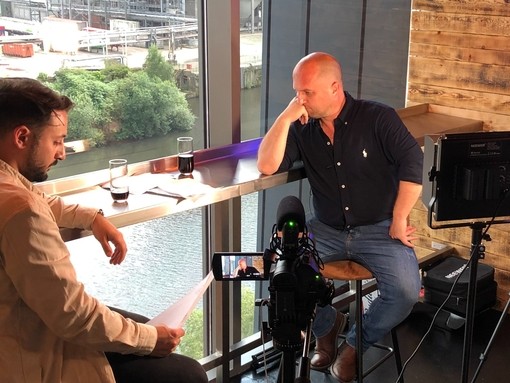
It’s Getting Meta: the future of jobs in the Metaverse
Contents
- Skills and roles required to build the Metaverse
- Software Engineer (Augmented Reality/Virtual Reality)
- Research Scientist
- Hardware Engineers
- Metaverse Cyber Security
- Metaverse Planner/Storyteller
- Will I be able to have a job within the Metaverse itself?
- The Metaverse could change how you approach all work
- Getting a job in the Metaverse
Contents
For the first time in their 17-year history, Facebook is shrinking.
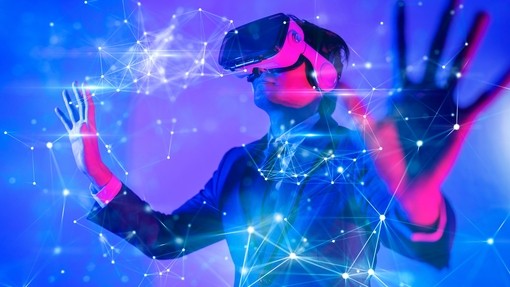
The social networking giant lost around half a million global daily users in Q4 2021, signalling the start of an anticipated and inevitable decline.
There are a few reasons for this. For one, Facebook has found itself struggling to remain relevant in an age dominated largely by their subsidiary platform Instagram and direct competitors TikTok, who are far more effective at attracting the crucial younger user demographic.
They’ve also run out of new countries to expand into, with the platform covering pretty much every country in the world except places like China, where the network is banned. Following growing privacy concerns in the wake of the Cambridge Analytica scandal and an increasing distrust in the platform for spreading fake news and propaganda, users are choosing to log off and deactivate for good.
It’s clear the most used social platform in the world needs to adapt to hold its position, one that sees them harvest an estimated 60 billion minutes of human engagement every day.
Enter – the Metaverse. Sort of like Second Life for the post-Pokémon Go world or Habbo Hotel for grownups, the Metaverse is being touted as ‘the next evolution of social connection’ by Facebook themselves, who have subsequently rebranded themselves Meta in an all-in strategy to redefine their identity.
“Screens just can’t convey the full range of human expression and connection. They can’t deliver that deep feeling of presence. But the next version of the internet can. We should be building technology that’s built around people and how we experience the world and interact. That’s what the Metaverse is all about.” – Mark Zuckerberg, Meta CEO
Their ‘verse will consist, at least in part, of virtual reality 3D spaces that allow you to socialise, learn, play and collaborate. It plans to harness the most cutting edge virtual and augmented reality technology to deliver an experience like no other. The theory of the Metaverse is simple, yet highly complex. It signals a complete change in how people could interact socially: an avatar stepping into a virtual world complete with home area, a digital economy (spending money on virtual clothing is sure to be a quick earner, as it was for its predecessors across social and gaming) and even live events.
At this stage in its development, exactly what the Metaverse will be or how one will interact with it lacks precise definition. In an almost 90-minute keynote presentation, Zuckerberg walks through virtual rooms and through the hypothetical social scenarios that the Metaverse could realise, although some of this ignores the limitations of even advanced versions of current technology in favour of holograms, clumsy VR headsets and dialogue being performed by people who appear to have only ever read about how social interaction works in a book.
Whatever the Meta looks like, the one thing that’s certain is that the intersection of AI, VR, gaming and augmented reality will provide a lot of opportunities for jobs in tech. Here are a few of the most interesting ones:
Skills and roles required to build the Metaverse
Software Engineer (Augmented Reality/Virtual Reality)
At face value, a lot of Software Engineers are going to be required who have an in-depth knowledge of augmented reality and virtual reality, and the large amounts of data that this would entail. Meta, and the associated companies as part of the project, would need Software Engineers with key experience such as system design, AI, natural language programming (NLP), user interface design and more. The gaming sector is a space where a lot of these engineers possess these skills and experience.
Research Scientist
The future of the Metaverse is much bigger than most would imagine. Harnessing the power of AR and VR, the Research Scientist would have to create and develop an incredible amount of seamless architecture to enable the system to work, the foundation of which all other functionality will be built upon.
According to .cult:
“Metaverse Research Scientists will need to build is something akin to the theory of everything, wherein the entire world is visible and actionable digitally. This is an insanely complex undertaking. Candidates will need to be able to build, then scale prototypes using technology at the confluence of computer vision algorithms for 3D computational photography, neural rendering, scene reconstruction, computational imaging, visual-inertial odometry, state estimation, sensor fusion, mapping and localization and those prototypes would need to get bigger with time.”
Getting into this role would involve an incredible breadth of knowledge and understanding across multiple fields: deep learning, computer vision, graphics and C++.

Hardware Engineers
The Metaverse isn’t just code. To make it work, there is a lot of hardware that will be required, from the initial user interface (VR headsets, sensors etc) to the gargantuan amount of server and data storage space that will be required to fully realise a digital world.
The physical architecture will be just as vast as the digital architecture. Just imagine the size of the server farms that will be required to get this project off the ground, and the number of VR headsets…
Metaverse Cyber Security
The internet in its current form isn’t the safest place. The Metaverse will be no different, with cyber-attackers, fraudsters and scammers no doubt licking their lips at the prospect of having a brave new virtual world in which to extort and steal.
Given that the data captured in the Metaverse means that everything from location data to motion capture (even brainwave patterns as has been trialled by Elon Musk, among others) to biometrical and financial information could be floating around in the virtual realm, the cybersecurity element of it is crucial. People will be required to block attacks and ensure laws are adhered to, or in some case written from scratch.
Having a background in standard cybersecurity as well as a degree-level grounding in law would make you an ideal candidate for this role.
Metaverse Planner/Storyteller
If the current vision of the Metaverse were to come to fruition (a seamless union between social and gamification) then there will have to be something to do in this virtual world. Sitting bored in a virtual recreation of your home is just the same as sitting bored in the real thing, and this is where the Metaverse Planners and Storytellers come in.
Less to do with having software development skills and more your ability to craft compelling narratives, a Metaverse Storyteller would be the author of why people return. Offering a massive open world is one thing (World of Warcraft-style) but driving people back is another. Thinking in terms of quests, scenarios, team games and stories… even psychology and meditation-based activities. If you’re thinking of becoming a Metaverse Storyteller, having a good background in literature, and working for a gaming company would be an excellent start.
Will I be able to have a job within the Metaverse itself?
We’ve looked at the skills and roles required to make the Metaverse a reality, but what about having a job within it? A virtual commute, anyone?
It’s a possibility. Not only is the Metaverse poised to completely reshape the way in which you communicate with your colleagues around the world in your current job, there could also be jobs within the virtual world itself…
The Metaverse could change how you approach all work
The Metaverse has the potential to completely diminish the negatives associated with remote working. While Teams or Zoom calls have certainly helped bring people together through a time of unprecedented separation, they can suffer from an inability to perform quick communication, read body language and freely collaborate in the same was as in-person working. In the Metaverse, this could be remedied, with team members joining as avatars in 3D workspaces through VR headsets and motion sensors. This has the potential to break down the barriers of distance and time.
Virtual workspaces don’t exist within the boundaries of limitations. There are no restrictions, and realised virtual worlds allow the potential for real-time problem solving.
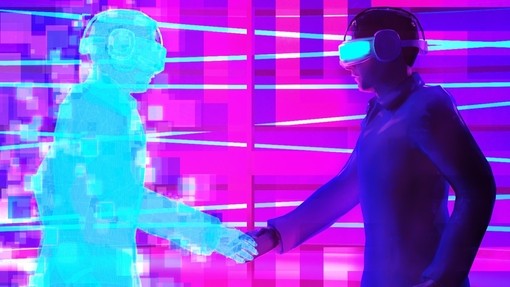
Getting a job in the Metaverse
There is also potential for actual jobs to exist in the Metaverse. Consider perhaps that you could be a teacher exclusively within the virtual world, logging on each day to teach a class of students from every corner of the world.
There could also potentially be guides working full time on the platform, offering advice and hosting guests of the virtual realm and leading them on engaging adventures. All with no commuting necessary!
The Metaverse vision may not be complete or even fully realisable with the current state of technology, but it’s on the way. With the leaps in gaming, artificial intelligence and computing over the last two decades, the virtual worlds of the future promise to be more fantastical than most could imagine.
How we build them and interact with them will be an ongoing human challenge, whether we like it or not.
We pride ourselves on being a clear, educated voice, in an often crowded and competitive market. Get in touch with Andy Wadsworth (andy.wadsworth@morson.com) to find out how our insight and experience can help your teach organisation thrive in an ever-changing industry.
Search our latest jobs in tech and artificial intelligence here
Contents
- Skills and roles required to build the Metaverse
- Software Engineer (Augmented Reality/Virtual Reality)
- Research Scientist
- Hardware Engineers
- Metaverse Cyber Security
- Metaverse Planner/Storyteller
- Will I be able to have a job within the Metaverse itself?
- The Metaverse could change how you approach all work
- Getting a job in the Metaverse



